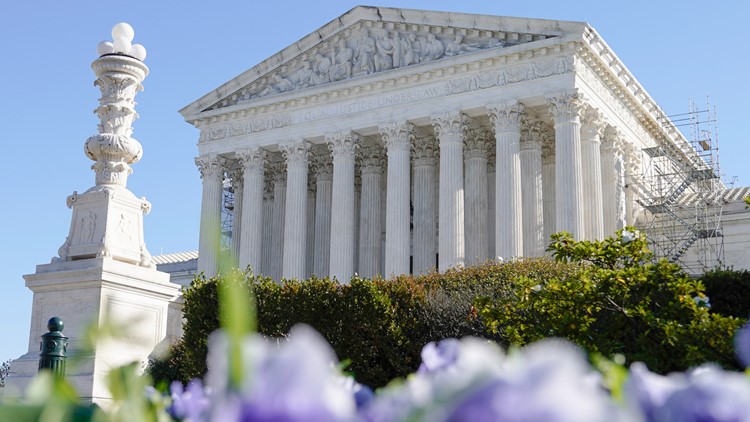The Supreme Court adopted its first code of conduct on Monday, Nov. 13 in the face of persistent criticism over some justices accepting undisclosed trips and other gifts.
A series of stories published by ProPublica focused on Supreme Court Justice Clarence Thomas’ failure to disclose vacations and travel, as well as other financial ties with wealthy conservative donors such as Harlan Crow and the Koch brothers. Justices Samuel Alito and Sonia Sotomayor have also faced scrutiny in recent months.
Some people on social media criticized the Supreme Court’s new code of conduct, writing in viral posts that there’s no way to enforce it.
THE QUESTION
Is it true there’s no way to enforce the Supreme Court’s new code of conduct?
THE SOURCES
- Code of Conduct for Justices of the Supreme Court of the United States
- Benjamin Barton, J.D., a law professor and Supreme Court expert at the University of Tennessee
- Russell Wheeler, nonresident senior fellow in governance studies at the Brookings Institution and former deputy director of the Federal Judicial Center
- Senate Majority Leader Chuck Schumer
- Sen. Sheldon Whitehouse (D-RI)
THE ANSWER
The claims are true. There’s no way to enforce the Supreme Court’s new code of conduct.
WHAT WE FOUND
Russell Wheeler, who served as former deputy director of the Federal Judicial Center and now works with the Brookings Institution, and University of Tennessee law professor Benjamin Barton told VERIFY there is no way to enforce the Supreme Court’s new code of conduct.
The code itself also doesn’t specify who would determine if justices violate the rules or a means of enforcement.
Barton, who is an expert on the Supreme Court, said he is “not surprised” there isn’t an enforcement mechanism for the new code of conduct.
“Honestly, [for] an ethics code like this, it would be hard to come up with an enforcement mechanism that would really have much teeth,” Barton said.
The new code of conduct explains that the Supreme Court’s Office of Legal Counsel will “maintain specific guidance tailored to recurring ethics and financial disclosure issues,” and provide annual trainings on these issues to justices and other Court personnel.
But it doesn’t outline any disciplinary action for violations or clarify whether the trainings would be required.
Several Democratic lawmakers, including Senate Majority Leader Chuck Schumer and Rhode Island Sen. Sheldon Whitehouse, also noted in statements the absence of a way to enforce the code.
“The Supreme Court took an important first step to set rules of the road for ethical conduct for Justices. It is long past time for a code of conduct that explicitly applies to the Justices,” Schumer wrote. “However, the lack of any way to enforce the code of conduct should any Justice decide to ignore it is a glaring omission.”
All federal judges, including Supreme Court justices, hold their offices for life. The only way to remove a Supreme Court justice is impeachment by Congress.
It would take a majority vote in the House to impeach a justice, followed by a two-thirds majority in the Senate to convict and remove them from office.
Only one justice – Samuel Chase – was impeached in 1805, but there weren’t enough votes in the Senate to remove him from office.
The Associated Press contributed to this report.



